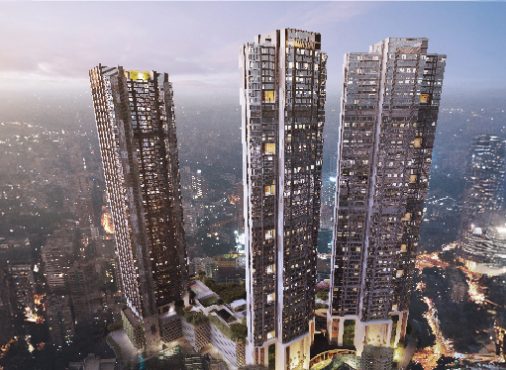The Indian real estate market is witnessing remarkable economic growth due to the increasing real estate investments by NRIs. The potential for higher returns on real estate investment in India is promising due to several factors, such as infrastructural development, government policies, tax benefits, and more.
NRIs planning to invest in the Indian real estate market can read this blog post for a comprehensive guide on investing in real estate development projects in India, highlighting the opportunities available.
Why Are Real Estate Development Projects an Attractive Investment for NRIs?
Here are some of the factors that attract NRIs to invest in real estate development projects in India:
Potential for High Returns
NRIs can achieve substantial returns by investing in real estate development projects. An investor can enhance their portfolio by earning rental income and long-term capital appreciation from these properties. In major cities like Mumbai, Bangalore, and Hyderabad, property values have consistently risen, making them lucrative markets for investment.
Diversification of Investment Portfolios
Real estate serves as a stable and tangible asset that can diversify an investment portfolio. For NRIs, this diversification is crucial as it helps mitigate risks associated with more volatile investments such as stocks. By incorporating real estate into their portfolios, NRIs can achieve a balanced approach to wealth management.
Growing Demand for Luxury Real Estate
The demand for luxury and premium real estate in India is increasing day by day. As the urban population increases and disposable incomes grow, there is a significant market for high-end residential properties. This trend presents NRIs with opportunities to invest in developments that cater to affluent buyers looking for luxury living spaces.
Government Initiatives and Policies
The Indian government has implemented several initiatives to encourage foreign investments in the real estate sector. Policies such as the Real Estate Regulation and Development Act (RERA) have introduced transparency and accountability in the market, making it easier for NRIs to invest confidently. Additionally, relaxed foreign direct investment (FDI) norms have simplified the investment process.
Read Also: What is RERA Approved?
Understanding Real Estate Development Projects
Real estate development projects encompass various types of properties, such as residential, commercial, and mixed-use developments. Understanding these categories is essential for NRIs looking to invest.
Key Stages of a Real Estate Development Project
- Land Acquisition: This involves securing land for development.
- Construction: The actual building process where developers bring their plans to life.
- Marketing: Promoting the property to potential buyers or tenants.
- Delivery: The final stage where the completed property is handed over to buyers or tenants.
Developers play a crucial role throughout these stages, ensuring that projects meet quality standards while adhering to timelines.
Types of Real Estate Development Projects for NRIs
Following are the three primary types of real estate development projects in India for NRIs:
Luxury Residential Projects
Luxury residential projects include high-end apartments, villas, and penthouses that cater to affluent buyers. These properties often come with premium amenities and are located in prime areas, making them attractive investments for NRIs seeking high returns.
Commercial Properties
Investing in commercial properties such as office spaces and retail developments can provide steady rental income. As businesses continue to expand in India, demand for commercial spaces remains strong. This offers NRIs a reliable income stream.
Integrated Townships and Smart Cities
Integrated townships and smart cities represent large-scale developments that focus on providing comprehensive living environments. These projects often include residential units, commercial spaces, parks, and educational institutions, making them appealing options for NRIs looking to invest in sustainable communities.
Can NRIs Benefit from Investing in Real Estate Development Projects?
Here are the advantages of investing in real estate development projects for NRIs:
High Appreciation Potential
Investing in development projects located in prime areas ensures an increase in property value over time due to urban growth and infrastructure improvements. Areas undergoing rapid development often see faster appreciation rates compared to established neighbourhoods.
Passive Income Opportunities
NRIs can generate passive income by renting out properties or participating in income-generating commercial projects. This rental income can provide financial stability while allowing investors to benefit from capital appreciation over time.
Tax Benefits
There are various tax benefits available for NRIs investing in real estate development projects. Understanding these benefits can help optimise returns on investments while ensuring compliance with Indian tax laws.
Long-Term Wealth Creation
Real estate investments offer long-term wealth creation opportunities, allowing NRIs to build a legacy for future generations. Properties often appreciate significantly over time, providing substantial returns that can be passed down through families.
Read Also: Luxury Property Ownership and Wealth Transfer Planning for NRIs
Key Factors to Consider Before Investing in a Real Estate Development Project
When considering an investment in a real estate development project, NRIs should evaluate several key factors:
Location
Selecting a project in a prime or developing area with growth potential is crucial. Areas with strong infrastructure development and connectivity tend to appreciate faster than others.
Developer’s Reputation
Assessing the credibility and track record of developers is essential. Established developers like Rustomjee have demonstrated expertise in delivering high-quality projects on time.
Legal Compliance
Ensuring adherence to zoning laws, RERA regulations, and other legal requirements is vital for protecting investments. Understanding the legal landscape helps mitigate risks associated with property ownership.
Project Timeline and Cost Structure
Understanding the project’s timeline and cost structure helps investors prepare financially. Besides, it manages expectations regarding returns on investment.
Financing Real Estate Development Projects as an NRI
NRIs have access to various financing options when investing in real estate:
- Home Loans: Many banks offer home loans tailored specifically for NRIs.
- NRI-Specific Loan Products: These products cater to the unique needs of NRIs looking to invest.
- Currency Considerations: Managing foreign exchange rates and repatriation of funds is important when securing financing.
Understanding Legal and Tax Implications for NRIs
NRIs must be aware of the legal framework surrounding real estate investments.
- Taxation: Understanding taxation on rental income, capital gains, and property transactions is crucial.
- Legal Documentation: Familiarity with legal documents required for transactions helps streamline the process.
- Power of Attorney (POA): It can be useful for managing investments remotely.
Rustomjee offers guidance on navigating these legal complexities effectively.
The Risks Involved in Real Estate Investment and How to Mitigate Them
Investing in real estate development projects carries certain risks:
- Delays: Construction delays can impact returns.
- Market Fluctuations: Changes in market conditions may affect property values.
- Legal Disputes: Issues may arise from non-compliance with regulations.
To mitigate these risks, NRIs should conduct thorough research before investing. Selecting reputed developers like Rustomjee can also minimise potential pitfalls. Additionally, hiring a property manager can help maintain property value over time.
Why Choose Rustomjee for Your Real Estate Development Investments?
Rustomjee stands out as a trusted name in Indian real estate due to its:
- Expertise and Legacy: A strong track record of delivering high-quality projects across prime locations.
- Commitment to Transparency: Ensuring legal compliance while providing superior value to NRI investors.
- Tailored Investment Solutions: Offering personalised advisory services specifically designed for NRIs looking to invest.
By choosing Rustomjee, investors can benefit from expert guidance throughout their investment journey.
Conclusion
Investing in real estate development projects presents numerous benefits and opportunities for NRIs. By making informed decisions based on thorough research, investors can capitalise on the growing Indian real estate market.
For those interested in exploring current and upcoming projects, Rustomjee offers a range of commercial and residential properties tailored to meet NRI investment needs. Contact us today to invest in commercial and residential properties by Rustomjee!
FAQs
- How do I choose the right real estate development project for investment?
Choosing the right project involves evaluating several factors, including location, developer reputation, and market trends. It’s essential to conduct thorough research and possibly consult with real estate experts to ensure that the investment aligns with your financial goals and risk tolerance.
- How can NRIs ensure the legal security of their real estate investments in India?
NRIs can ensure legal security by verifying the property’s title, checking for clearances, and consulting with a trusted legal advisor. It’s also advisable to register the property under the correct ownership structure for NRIs.
- What are the benefits of investing in real estate development projects in tier-2 cities for NRIs?
Investing in tier-2 cities offers NRIs opportunities for higher returns due to lower property prices, rapid infrastructure growth, and emerging commercial opportunities. These cities often have less competition and greater potential for appreciation.








